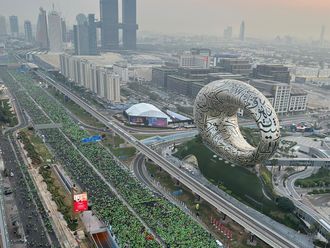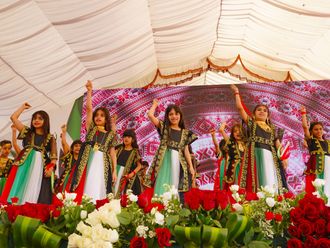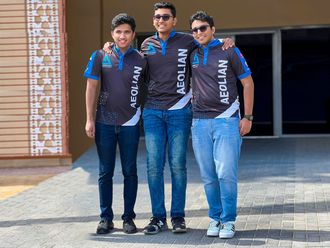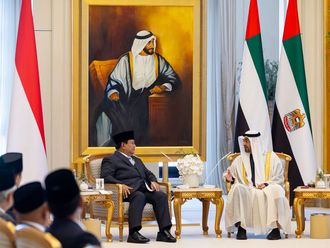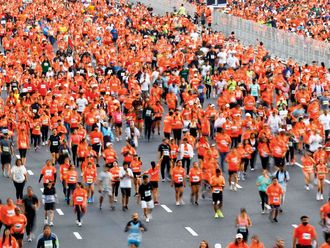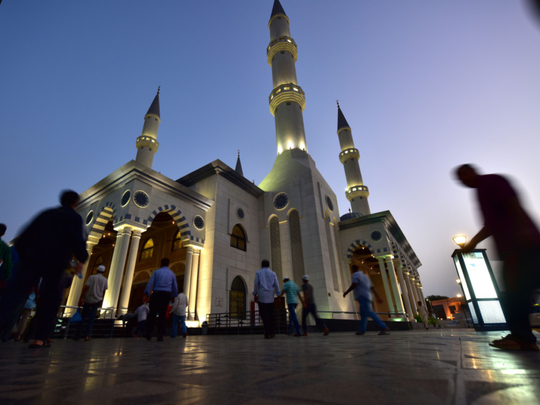
Dubai: Suspending prayers in UAE mosques as a precaution against coronavirus is a decision based in Sharia (Islamic law) and public health, the Grand Mufti of Dubai has said.
In an exclusive interview with Gulf News, Dr Ahmad Abdul Aziz Al Haddad, who is also head of the fatwa (Islamic edict) department at Dubai’s Islamic Affairs and Charitable Activities Department (IACAD), said Sharia is “all-encompassing and puts appropriate solutions for such emergency conditions”.
UAE authorities last Monday suspended for a month congregational prayers at mosques (and all other places of worship) to curb the spread of COVID-19 in the UAE, which has so far recorded 153 cases, with 38 recoveries and two deaths.

‘Mitigating danger’
Dr Al Haddad said the Sharia basis for the suspension stems from the principle of “mitigating danger and harm to the people”.
He explained: “One of the general rules of Sharia is to defend against harm. There is great harm that could result from the spread of this virus. Sharia is all encompassing and puts appropriate solutions for such emergency conditions. Thus, people are asked to pray at their homes to ensure they remain protected and safe.”
The Grand Mufti said the decision is in line with “the directives of competent medical authorities, as well as the official emergency and crisis team. They indicated that one of the reasons for the spread of COVID-19 is large gatherings. They further stated that we can prevent this by not being present in, among other places, mosques, which have a large number of people. They are entrusted with protecting the people and the country, so we follow their directions”.
Muslims pray five times a day, either separately or in congregational (group) prayers held in mosques. They stand shoulder-to-shoulder in rows during congregational prayers. Some mosques see tens of thousands of worshippers for the Friday prayer.
These days, the mosques are empty in the UAE and some other countries that also temporarily suspended congregational prayers.
Adhan modified
The move to suspend prayers included a temporary modification to the Arabic adhan, or call to prayer, voiced by the muezzin (the one who calls to prayer) over loudspeakers at mosques. The adhan is sometimes a recorded format played over loudspeakers or on TV and radio at the time of each prayer.
The modification, in effect during the duration of the congregational prayer suspension, replaces the usual phrase “come to prayer” with “pray in your homes”. The new phrase can also be translated as “pray where you are”.
Proven precedent
Dr Al Haddad said the modification has a precedent, therefore a basis, in Sharia.
“It has been proven in the Sunnah [the teaching of Prophet Mohammad, peace be upon him] that [the modification] has been made part of the adhan, as the muezzin is instructed to say ‘pray in your homes’ instead of ‘come to the prayer’ during or [immediately] after the adhan – both ways are permissible. A hadith [narration] by Prophet Mohammed, peace be upon him, mentioned that praying is valid anywhere.”
Call to cooperate
Dr Al Haddad called on the community to follow the instructions of authorities for their own wellbeing as well as the health interests of others.
He said: “Our message to people is to adhere to the official directives to protect themselves from this virus. These directives are set by officials to preserve the nation’s well-being. These include: reducing going out and not shaking hands, and whatever personal and public protection requires as set by the ministry and the crisis and emergency team. We also ask people not to propagate or believe rumors – this only results in confusion among the public and is counterproductive.”
What about Ramadan?
There has been speculation about the impact of COVID-19 on some plans for Ramadan, the Islamic holy month of fasting, which this year begins in the last week of April. Many Muslims have meals together at mosques to end the day’s fast at sunset. There are also optional group prayers after the regular night prayer during Ramadan at mosques.
When asked about the plans for Ramadan, Dr Al Haddad said: “We hope the holy month of Ramadan will arrive - God willing – and that God frees the Ummah from this disease. Plans for Ramadan programmes have a specific department and team, as they follow what needs to be done. Decisions related to Ramadan will be announced at the appropriate time.”


